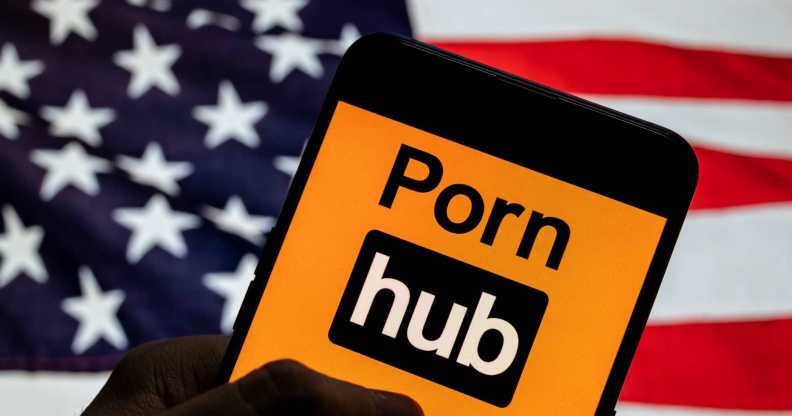Texas anti-porn bill violates First Amendment free speech laws, judge rules

A Texas judge has halted the state’s anti-porn bill. (Budrul Chukrut/SOPA Images/LightRocket via Getty Images)
A federal judge has ruled that Texas’ anti-porn legislation violates the First Amendment, halting the bill just one day before it was set to go into effect.
The bill, known as HB 1181, was due to be implemented on Friday (1 September) and would require adult websites to use “reasonable age verification methods”, such as government ID, to ensure users who are accessing explicit content are aged 18 or older.
Alongside this, porn websites would have been forced by the legislation to display health warning on their website in 14-point font, which reads: “Pornography is potentially biologically addictive, is proven to harm human brain development, desensitizes brain reward circuits, increases conditioned responses, and weakens brain function.”
If adult websites fail to adhere to these regulations set out in the law, HB 1181 would enable the Texas attorney general to sue such sites for $3 million a year.
On Thursday (31 August), however, senior US District judge David A. Ezra of the US. District Court for the Western District of Texas issued a final-hour preliminary injunction against the bill, describing it as “unconstitutional on its face”.
Ezra’s decision comes after Pornhub – alongside several other adult sites such as FakeTaxi.com, BangBros.com and SpiceVids – and the Free Speech Coalition (FSC), filed a lawsuit against Texas over the bill.
The judge described the legislation as “not narrowly tailored” and “chills the free speech of Plaintiffs and adults who wish to access sexual materials”.
“The state has a legitimate goal in protecting children from sexually explicit material online,” Ezra added.
“But that goal, however crucial, does not negate this Court’s burden to ensure that the laws passed in its pursuit comport with established First Amendment doctrine.”
Texas’ defence was based in ‘ideology and politics’
In response to the ruling, Alison Boden – executive director of Free Speech Coalition – said in a statement: “This is a huge and important victory against the rising tide of censorship online.
“From the beginning, we have argued that the Texas law, and those like it, are both dangerous and unconstitutional.
“We’re pleased that the Court agreed with our view that HB 1181’s true purpose is not to protect young people, but to prevent Texans from enjoying First Amendment protected expression.
“The state’s defense of the law was not based in science or technology, but ideology and politics.”
Bolden added: “The ruling rebuffs nearly every argument made by state legislatures, and not only in Texas.
“While Texas presented the most straightforward path to securing a ruling like this, the issues are the same whether in Utah, Louisiana or Virginia. Anyone who attempts to bring a case in those jurisdictions faces little hope of success.
“We are thrilled with the decision and thank our co-plaintiffs for joining this battle and defending the industry. We are confident that the law will ultimately be struck down permanently.”
Mike Stabile, director of public affairs at FSC, told Rolling Stone the ruling would have an impact on other state’s which are seeking to pass similar laws.
“The court said in no uncertain terms that this scheme in Texas is ineffective and unconstitutional, and it rejected nearly every single argument the state made,” Stabile explained.
“Unfortunately for the religious groups pushing this legislation, the copycat legislation in Louisiana, Utah, Virginia and other states suffers all the same inherent problems,” he added.
“There’s been a lot of murmuring on the right that they’d finally found a way to censor adult content online. This ruling shows that their confidence was entirely misplaced, and is unlikely to survive a court challenge.”
Currently, there are a number of anti-porn laws being discussed in states across America, which are copycat bills of each other and seek to restrict access to explicit materials across the board.
In the same week, a judge in Texas blocked an anti-drag bill, shortly before it was set to ban performances across the state.

